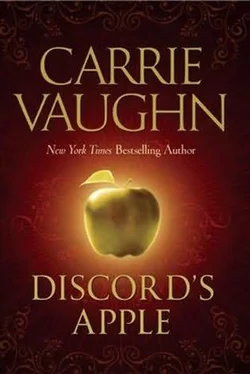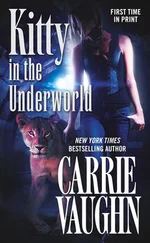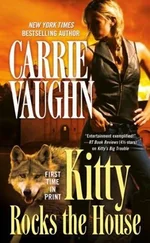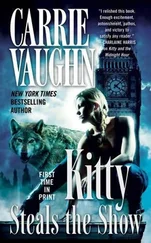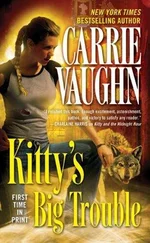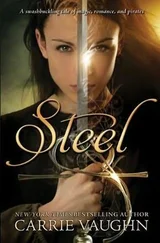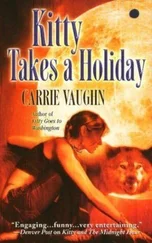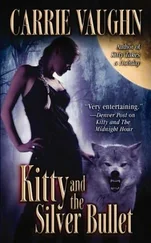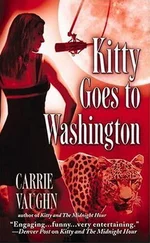Robin got in on the other side. The Wanderer climbed into the driver’s seat and moved the car into the street.
Evie tried calling Bruce on the cell phone and couldn’t get a signal. Hardly surprising and just as well. What could she say to him?
Hey, Bruce, you won’t believe who just showed up on my doorstep.
He’d only chew her out for not getting any pictures of the sword.
There weren’t any aftershocks.
Arthur said he’d rather being doing something, and Evie understood the urge. All she could do right now was write.
She’d left Tracker totally in the air. The laptop battery was charged up. She’d write as long as she had the juice. So where was she?
She shot him.
She didn’t wait for him to draw first. She’d been watching his hands at the edges of her vision; she knew he was holding a gun. Before the words had left his mouth, she leveled and fired.
Twice more she fired, and the Russian and Chinese officers lay on the floor, writhing on top of the American agent’s body. The whole sequence took only a couple of seconds, because she’d been planning it since she first heard their voices.
The agent had studied her dossier, she assumed. Her dossier said that she never shot first.
Three more times she fired, three shots to three heads, killing them.
She leaned back against the wall and loaded a fresh magazine, waiting for guards to come barreling down the hallway at her. On the verge of hyperventilating, she swallowed back gasps. The room remained silent.
This was probably exactly what the agent was talking about, when he said the Eagle Eyes were out of control. She searched the bodies, not believing for a minute that they’d have any hard record of their multinational negotiations and war-brokering. But the U.S. agent had a data stick in his breast pocket. She took it. What the hell.
Apparently, they hadn’t brought any guards with them. No witnesses that way. A pickup was probably scheduled for them later. She wondered what the agent had expected he was going to do with the Eagle Eyes when they showed up. Was he arrogant enough to think he could have killed them all? He might have been able to—they expected him to be on their side.
She found that the first room in the bunker was rigged to collapse, low-level explosives planted on key support beams. That was how he’d planned on getting rid of them.
Back outside, staring at the expanse of tundra, the hopelessness of her situation hit her. She had no way to call for help. She had no place to go. Her own government had betrayed her. And her friends.
She had to find them. She had to give Talon the flash drive. He’d know what to do. He was the only one she trusted now.
She had to be out of sight when the pickup for the others came. She turned west and started walking.
The trick to writing suspense was to fling the characters into increasingly impossible situations and then find plausible ways to get them out. And hope the situation you created wasn’t too impossible.
She ate the last bit of rations—a smashed-up energy bar—she had stashed in her fatigues. Washed it down with a swig of vodka, which wasn’t the smartest thing she’d done all day, but it was all she had. If she found a snow patch, she’d melt as much of it as she could to rehydrate. She didn’t like the way her vision was blurring.
The rhythmic, air-pounding whump of a low-flying helicopter sounded at the edges of her hearing. She reacted slowly. She wanted help; her hindbrain cried out that this was someone come to rescue her.
Or it could be the pickup for the meeting. Her paranoia won, and she dodged for cover.
Forests spotted the area, and she’d been heading for one of these. She ran now as the helicopter came into view to her left, a black spot growing larger and taking on form. She hesitated, looking for markings, until she realized that even if she saw an American flag on its tail, she couldn’t trust it. So she kept running, into the trees, past the trees, in case they’d seen her. Just reaching cover wouldn’t be enough.
The ground dropped away and she screamed.
She fell and kept falling. She hadn’t simply tripped and hit the ground. A ravine had opened in the middle of the forest, a sinkhole or fault or something that meant she was now hurtling twenty feet down to another part of the forest. She curled up and tried to go limp.
Her leg caught under her, twisted wrong, and she knew what it meant. She heard the crack before she felt the pain. When she finally stopped, she lay there for a long time, flat on her back, staring up at the sky. As soon as she tried to move, she would hurt.
But she had to move. She had to find Talon.
When she sat up, pain squealed through her right leg. Tracker clamped her mouth shut and swallowed back nausea. She was dehydrated; she couldn’t afford to throw up. A few deep breaths. A self-indulgent moan. Time to keep working.
Training had taught her, drilling into her over and over again what to do in a situation like this, how to survive, how to splint bones, how to keep warm. But training was nothing like reality. She couldn’t tie a splint tight enough. She couldn’t inflict that much pain on herself.
She gave up trying to climb out of the ravine—it hurt too much even to stand. She could rest here until morning, then make her way along the bottom. She would still be traveling west.
At least she hadn’t cried yet. Every muscle ached, from clenching against the pain.
Night was falling. She was about to get even colder. She managed to find a sheltered place, where the wind howled above her, instead of at her.
She was going to die alone in this place.
The memory stick was intact in her vest pocket. One misstep, and all her work and training came to nothing.
Captain Talon wouldn’t reprimand her. He wouldn’t even be angry. If she managed to get out of this and find him, he’d smile, tell her she did a good job, that she was a good soldier. His voice would be steady, kind. And all the more cruel because she didn’t deserve his kindness.
One more time, because as long as she kept trying, she was moving and wouldn’t freeze, she hoisted herself to her feet.
Hera, sitting in the passenger side of the front seat of the car, pulled off her sunglasses and considered Frank in the back. He stared straight ahead. Beside him, Robin was grinning, lounged back with his legs straight, seeming to enjoy himself.
“Mr. Walker, so good to meet you,” Hera said.
“What’s this about?” Not even pretending to be friendly. What was it about these Walkers?
“I only wondered if I could persuade you to part with a little something in your Storeroom.”
“You should have come to the house.”
“I did. Your daughter wasn’t very helpful.”
His look turned even colder, settling into the game of cloak and dagger he probably thought they were playing. The girl evidently hadn’t told him about her.
“Then there’s nothing there for you,” Frank said.
“I don’t care if you think I should have it or not. I’ll take it, one way or the other.” She turned to the Wanderer. “Take us to the cemetery.”
They pulled onto the state highway. Two turns later brought them to an isolated part of the town, a windswept corner of dried-up yellow prairie. Weathered headstones and monuments lined up in rows. A few larger mausoleums stood guard around the far edge. The place was peaceful and unnoticed. They could be a family out to visit a dearly departed loved one, to lay a few flowers on a grave.
The Wanderer turned the car around a miniature cul-de-sac, then pulled over on the straightaway and shut off the engine. No one moved. They had only to wait now, entertaining each other as best they could.
Читать дальше
